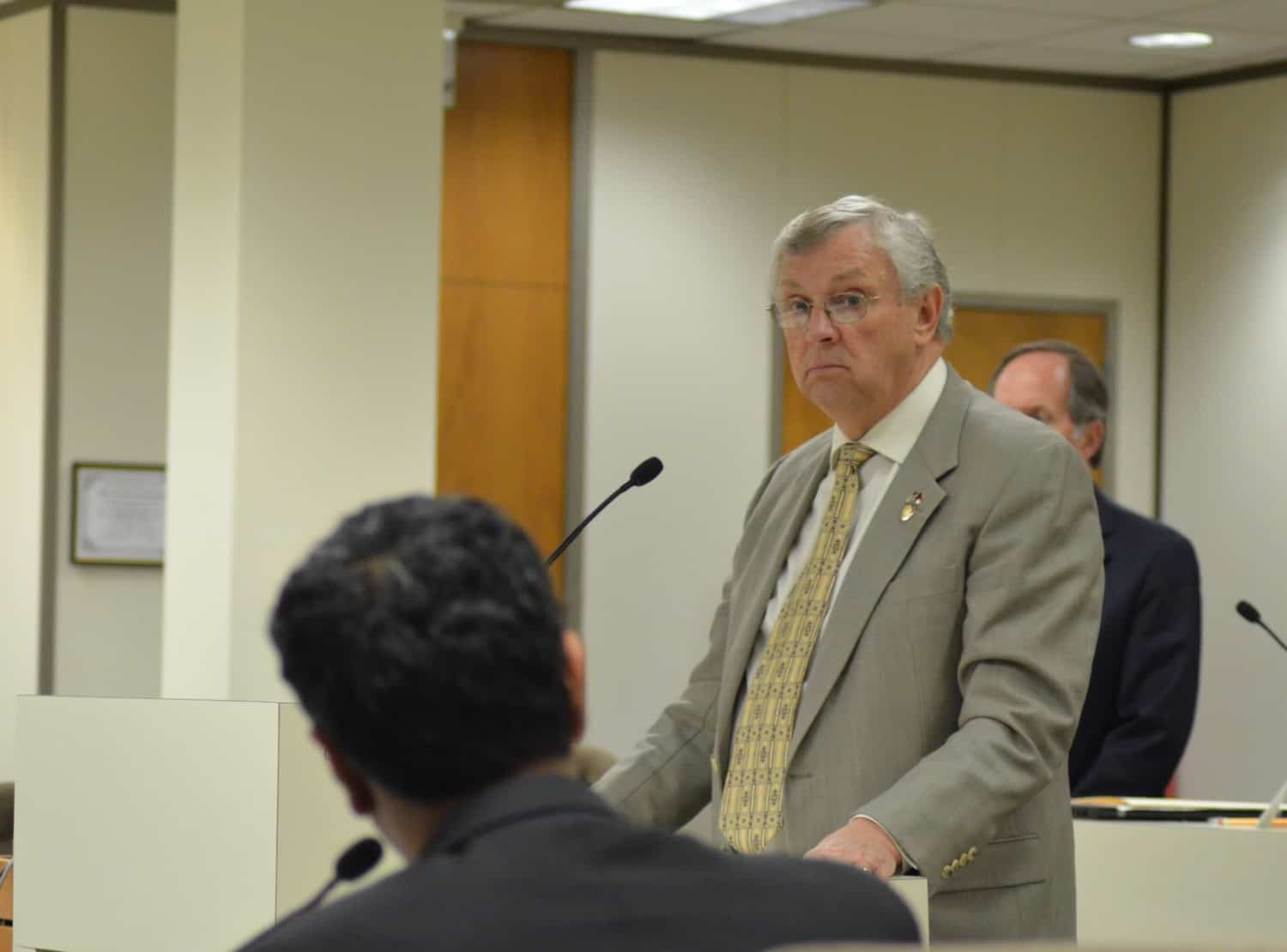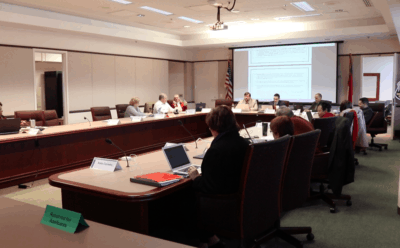With a compromise budget on the horizon, legislators are pushing bills through committees, and the Senate education committee is no exception.
Four bills made their way through the committee today, with three described by sponsors as largely technical. The more substantive bill, House Bill 149, addresses students with dyslexia and dyscalculia.
“It’s an issue that I’ve been working on for some time and was inspired by a wonderful young man in my district,” said Sen. Debra Conrad, R-Forsyth. She said the young man recently graduated from high school.
Conrad explained that up until this point, the state has no adopted definition of dyslexia or dyscalculia.
Conrad worked with the state Department of Public Instruction to come up with a definition of dyslexia that will be adopted by the State Board of Education.
The definition in the bill is as follows:
“Dyslexia is a specific learning disability that is neurobiological in origin. It is characterized by difficulties with accurate and/or fluent word recognition and by poor spelling and decoding abilities. These difficulties typically result from a deficit in the phonological component of language that is often unexpected in relation to other cognitive abilities and the provision of effective classroom instruction. Secondary consequences may include problems in reading comprehension and reduced reading experience that can impede growth of vocabulary and background knowledge.”
Dyscalculia is a disability marked by trouble learning or understanding arithmetic. There is no specific definition set forth in the bill.
The bill includes teacher professional development opportunities related to the disabilities — particularly in students’ early years when there is a big emphasis on reading.
“This is just going to be another tool to address the individual issue that children are dealing with,” Conrad said.
The bill also directs school boards to look at various software programs that can help them in identifying the disorders.
Sen. Tamara Barringer, R-Wake, shared her own connection with dyslexia. She mentioned her experience with having foster children in her home and noted one such child who had dyslexia and a genius level verbal IQ. Barringer said that until the third grade, that child would memorize books.
“She thought that’s what you do to read,” Barringer said.
In third grade, the books got so large that the child could no longer simply memorize them, and that’s when she was identified as having dyslexia.
Barringer also sought to dispel the commonly believed notion that people with dyslexia simply see words backwards. She said that her foster child saw the letters in words in different orders every time she read them.
“Reading is never going to be easy for her because she still struggles with it— because it truly is a disability,” Barringer said.
Sen. Chad Barefoot, R-Wake, co-chair of the committee said the bill has been “a long time coming.”
“I think all of us have heard the stories of people who have been affected by this,” he said.
A bill to modify the UNC Laboratory Schools program also passed the committee.
The UNC lab schools were created in the budget last session. UNC-system institutions would create these schools to try to improve student performance in low-performing schools while also training teachers and principals to better handle issues commonly seen from students in such schools.
The bill was described by Rep. Craig Horn, R-Union as largely technical, with only minor substantive changes: it increases the number of institutions creating lab schools from eight to nine and gives them one more year of preparation.
He said that UNC-system schools of education are designed around high quality teacher preparation. But he added that not every teacher prep school is high quality and that there is work to do.
“So, we’re going to push the UNC system,” he said. “That’s why we pushed from eight to nine.”
The original legislation had eight lab schools up and running by the 2018-19 school year. The bill considered today says that at least nine lab schools will begin by the 2019-20 school year instead. Horn said further adjustments can be made as the program develops.
“Like a lot of things around here, we’ll build the airplane as we fly it,” he said.
All the bills that passed the committee today will make a stop in the Senate Rules Committee.
“That’s not a death sentence,” Barefoot said, to which someone else replied: “Anymore.”
The Rules Committee used to have a reputation for being a place where bills do not advance.



